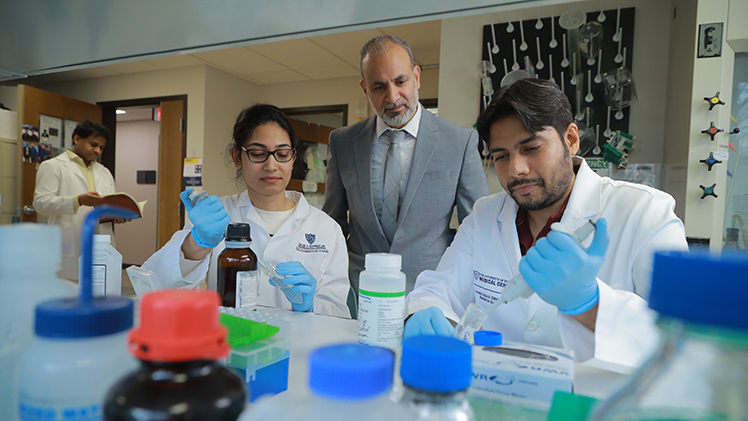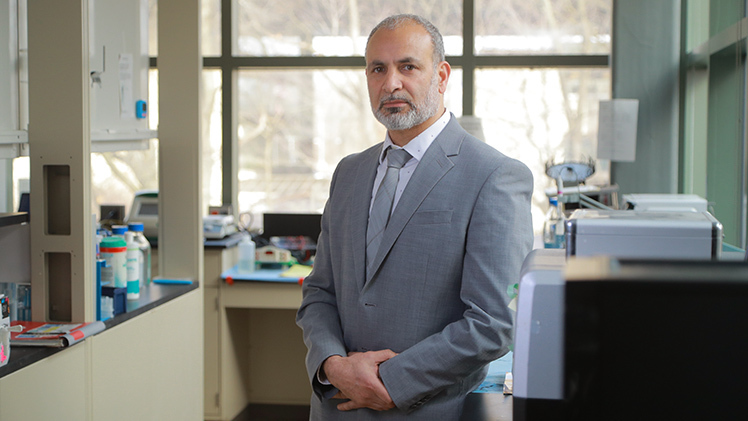A drug being developed by scientists at The University of Toledo could one day help stroke survivors return to the lives they previously enjoyed.
In a new study, researchers showed the drug improved both cognitive function and motor skills following a hemorrhagic stroke in mice. The results were recently published in the journal Pharmaceuticals.

A new study by Dr. Zahoor Shah, a neurobiologist and stroke researcher in the College of Pharmacy and Pharmaceutical Sciences, holds promise about a drug under development that can help stroke survivors recover cognitive and motor function abilities.
All strokes are medical emergencies and can prove fatal if not quickly treated.
Part of the challenge with hemorrhagic strokes in particular is that there’s both a primary injury brought on by the ruptured blood vessel and a secondary injury brought on by an inflammation response in the hours and days after the stroke.
“It’s that secondary injury that determines how well a stroke survivor recovers. The neuroinflammation can have devastating effects, and right now, there is no drug available to treat it,” said Dr. Zahoor Shah, a neurobiologist and stroke researcher in The University of Toledo College of Pharmacy and Pharmaceutical Sciences.
Shah, who is leading the research, previously found that a protein called cofilin plays a significant role in allowing the inflammation to spiral out of control, creating a cascade of damage that goes beyond the initial stroke event.
By creating a novel therapeutic agent that targets and inhibits cofilin, researchers were able to tamp down that inflammation and prevent some of the long-term complications so common in stroke survivors.
“If we can block inflammation, we can block neural death,” Shah said. “These were very good results that suggest our cofilin inhibitor has real potential therapeutic value as a treatment for survivors of hemorrhagic stroke.”

Dr. Zahoor Shah.
Shah’s research was supported by a five-year, $1.95 million grant from the National Institutes of Health.
Hemorrhagic strokes are significantly less common than ischemic strokes, which occur when blood flow to the brain is blocked, but there are still more than 100,000 incidents in the United States annually.
Nearly half of those who suffer a hemorrhagic stroke will die within a week. For those who survive, recovery is often long and incomplete.
“Doctors are are currently limited in what they can do medically for these patients. Most interventions are focused on preventing another stroke,” Shah said. “In lab tests, our cofilin inhibitor made a significant difference in recovery after a stroke. If this works in humans as it has worked in animals, it is going to be a game-changer.”
Mice were given the treatment twice a day for three days, beginning the day of the stroke. In addition to improvements in cognition and muscle strength, researchers also noted a significant reduction in hematoma volume in mice who received the treatment.
Shah is hopeful that the study’s results will help move the novel drug toward human trials. In the meantime, however, researchers are exploring whether the cofilin inhibitor might also be useful in the treatment of other brain disorders and injuries.
The UToledo research group already has found promising results that the drug may be able to prevent cognitive deficiencies in Alzheimers Disease and following traumatic brain injuries and also is preparing to investigate whether it can reduce the normal inflammation that comes with aging.